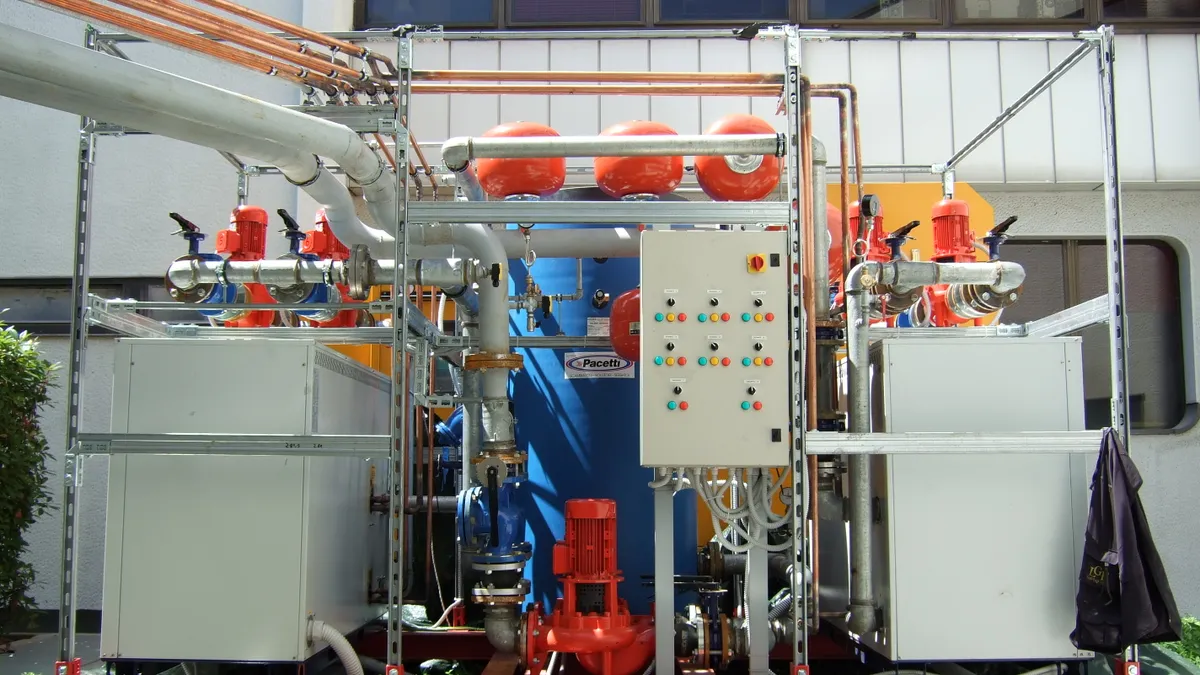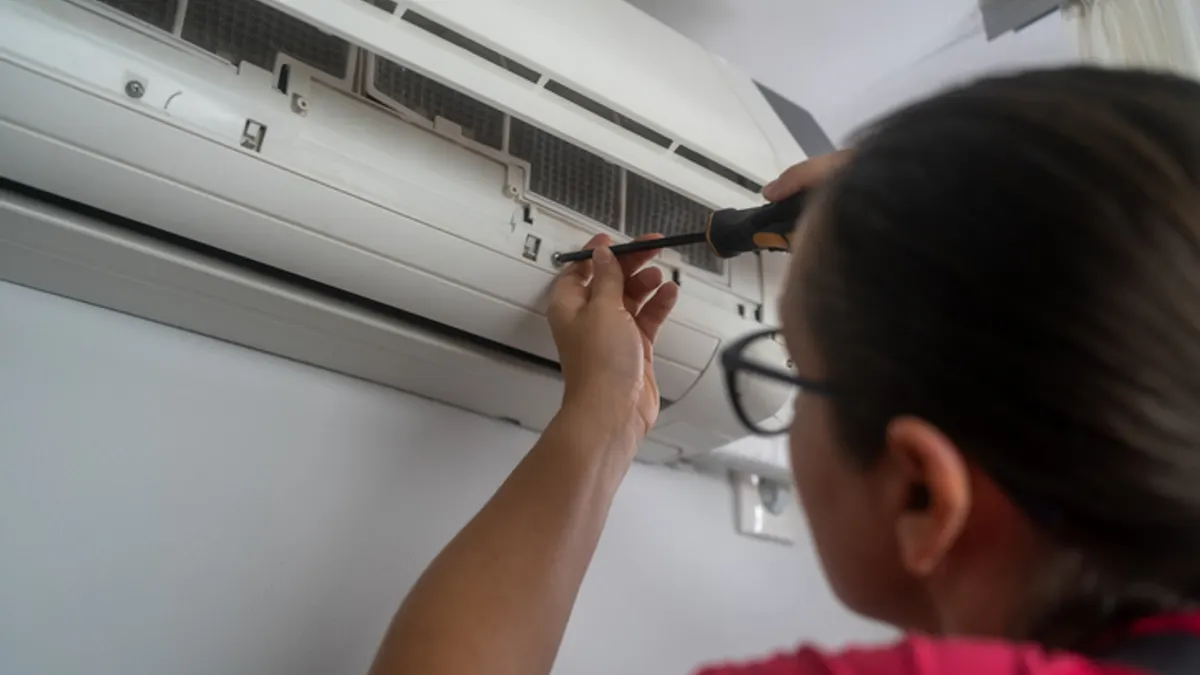Dive Brief:
- Honeywell’s Solstice ze refrigerant, designed for air-cooled and water-cooled commercial refrigeration, can potentially boost the energy efficiency of cold storage, the company announced Wednesday.
- Solstice ze, which Honeywell describes as an “ultra-low global warming potential refrigerant,” was 46% more energy efficient than traditional ammonia-based refrigerants when used in the modular KIBO chiller, which French refrigeration company Q-REF developed with Honeywell. The chiller is equipped with Danfoss Turbocor compressor technology.
- The KIBO chiller now requires nearly 20% less in maintenance operations and is 30% smaller and lighter than traditional ammonia-powered chillers, Q-REF CEO Benoit Duparc said in the release.
Dive Insight:
Refrigeration is a climate concern because it is energy-intensive and can employ refrigerants with high global warming potential, or GWP. A quicker phase-down of climate-warming refrigerants and higher efficiency standards for stationary cooling equipment are two priorities the Cool Coalition identified as key to reducing cooling-sector emissions, according to a report the group published during the COP28 climate talks in Dubai last December.
For many retailers and food producers, cold storage has a sizable impact on scope 3 emissions, Honeywell said in the release, noting that more energy-efficient technologies can help retail and food organizations meet their decarbonization goals. The company touts Solstice ze for use in applications that include commercial building cooling, cold storage, data center liquid cooling and room cooling, food retail cooling, and industrial processes. Solstice’s GWP is 99.9% lower than R-134a, a commonly used refrigerant today, Honeywell says.
Last week, Bosch announced that it would use a different Solstice refrigerant, 454B, in its newest line of heat pumps. That refrigerant is designed to match the performance of another refrigerant, R-410A, but to have 78% less GWP in light commercial and residential heating and air conditioning applications, Honeywell says.
The use of Solstice products from January 2010 to December 2020 helped avoid the potential release of carbon emissions equivalent to that of nearly 70 million gasoline-powered passenger vehicles a year, Honeywell said in the release.












